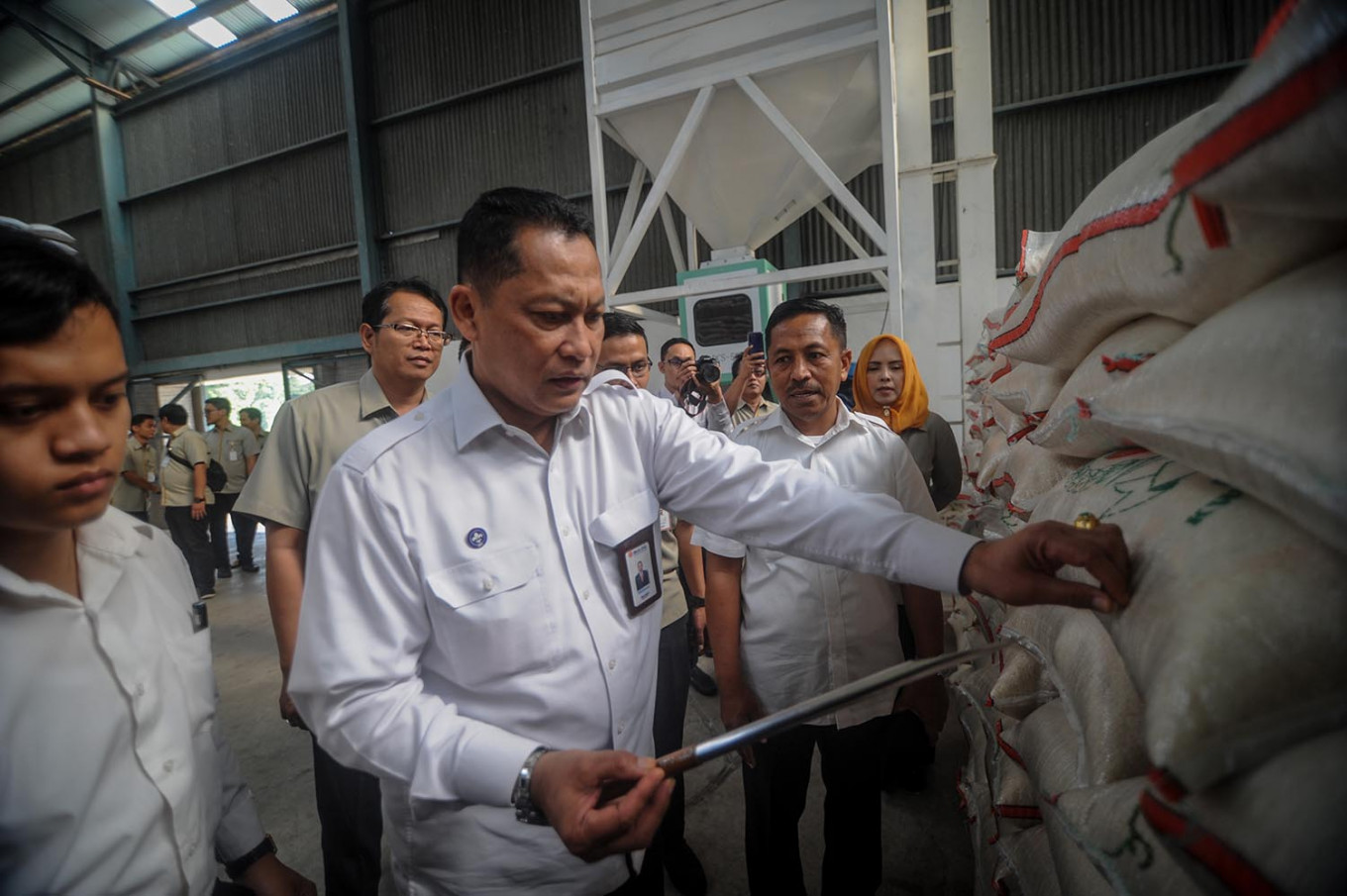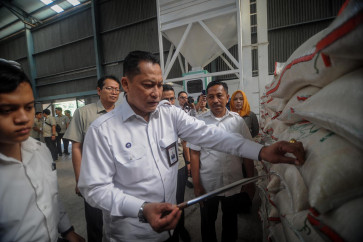Popular Reads
Top Results
Can't find what you're looking for?
View all search resultsPopular Reads
Top Results
Can't find what you're looking for?
View all search resultsClimate change and Indonesia's food system resilience
Open trade plays a vital role in building a resilient food system to anticipate the impacts of climate change.
Change text size
Gift Premium Articles
to Anyone
T
he impacts of climate change are too big to ignore. They include extreme weather that can severely affect productivity in the agriculture sector, and thus disrupt food availability and threaten food security. The future of our food system depends on our ability to adapt and create a resilient food system.
The World Meteorological Organization (WMO) reported that 2015-2021 was the seven warmest years on record and sea level rise had reached a new high. Climate change has also led to extreme drought and heavy rainfall, as well as erratic weather patterns.
Droughts in Kenya, for example, have caused maize harvest to drop between 42 and 70 percent below the average yield during the first harvest season in 2021, according to the WMO. At the same time, high rainfall following the La Niña weather phenomenon has raised the risk of flash floods, landslides and strong winds in Indonesia.
With the La Niña impact expected to culminate as the year-end harvest season arrives, the Agriculture Ministry has taken several anticipatory steps, such as rehabilitating irrigation systems, promoting the use of puddle-resistant rice seeds and collaborating with the Meteorology, Climatology and Geophysics Agency to develop an early warning system.
Theoretically, reduced production due to climate change will result in higher food prices that will in turn affect access, affordability and utilization of food.
In Indonesia, economic access to nutritious foods is already a key barrier to greater and healthier household consumption (World Food Programme/WFP, 2017). In 2017, the cheapest nutritious diet for the average four-person household cost Rp 1,191,883 per month or around US$83 (WFP, 2017), more than double the national average household expenditure on food in September 2020.
The World Bank said in 2020 that food already accounted for 55.3 percent of household spending. Food costs even reached 58.29 percent for households in the lower expenditure group, while it reached 41.42 percent for the upper expenditure group.



















